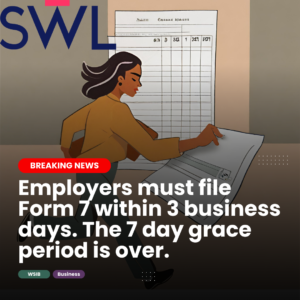By: Karina Pogosyan
Consideration is the necessary ingredient for implementing enforceable new employment agreements with your existing employees.
January of each year is a wonderful opportunity for all of us to turn a new leaf and to start afresh. There is a whole new year ahead to look forward to, filled with new goals and plans. For many organizations, some of those goals and plans often include giving bonuses for good work done the previous year or promoting an existing one to a new role within the organization. You may also be onboarding new employees. These are all reasons that serve as great opportunities to review your employment contracts to ensure they protect your business and are enforceable.
There are three requirements for a legally binding and enforceable employment contract: offer, acceptance and consideration.
Offer and acceptance are pretty straightforward for the most part. The employer must communicate a serious and reasonably specific job offer/promotion to the intended employee and that intended employee must clearly accept it. In most cases, the employer and employee have no trouble meeting these requirements. But what about the consideration?
Consideration refers to the contract law requirement that parties to a contract additionally exchange something of value between themselves in order for the offer and acceptance to create a binding agreement. Without that exchange of value, all that the parties have are promises to do something in the future. Unfortunately, in law that is not enough.
In a new employment context, consideration takes the form of an employer paying the employee for their work. Consideration is straightforward when hiring a new employee.
But what do you do when you need to change an employment contract with an existing employee? The same principles apply – offer, acceptance, and you need to offer new consideration (i.e. something of value) to make the new contract binding and enforceable. This is often called “fresh consideration”. It can be something as simple as giving an employee a raise or a bonus or some other, additional form of benefit in exchange for the new agreement to provide services (e.g. more vacation, additional sick days, more health and dental benefits).
The consequences of failing to provide fresh consideration can be detrimental. You may not be able to rely on a new employment contract if you did not give fresh consideration at the time the contract was signed. This can often mean that termination clauses will be unenforceable and your business can be liable for common law notice if the employee is terminated.
Contact one of our lawyers at SWL to discuss consideration and your employment contracts to ensure you can hire and promote employees with confidence.


